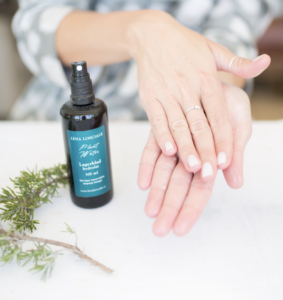
The functional path to wellness and Whol-istic healing
The distinction between traditional and functional medicine remained elusive throughout my formative years and educational experience. Biology revolves around a simple premise: the body performs certain functions, and you take prescribed medication when illness strikes. Only when I embarked on my healing journey did I begin to comprehend the profound intricacies of the health domain, surpassing the boundaries of what I had experienced and been taught. I believe many individuals residing in Western cultures share this frustration.
The past few decades have witnessed a shift, where Eastern healing modalities have shed their taboo status. Herbalism is no longer considered witchcraft, whereas homeopaths and doulas are esteemed health advisors. Some of the most developed societies and medical systems embrace the integration of holistic & alternative medicine. So what is the rise and definition of the whol-istic approach?
The struggle between traditional and modern approaches is evident in our society today. As we assess the state of our well-being, we question whether we are genuinely thriving amidst abundant knowledge and scientific advancements. With all these resources, should we not be experiencing optimal health as a society? We may have lost our way to a certain extent? The mind, body, and spirit are one, so where does the realm of well-being begin and end?

What is functional medicine, and how is it relevant today?
It’s a topic I often discuss with friends and family. Functional medicine entails a healthcare approach that centers on identifying and addressing the underlying causes of illness and disease rather than merely treating symptoms. It represents a patient-centered, holistic methodology that considers an individual’s distinctive genetic, environmental, and lifestyle factors, aiming to foster optimal health and well-being. There is no “ONE SHOE FITS ALL” in the holistic approach.
In the realm of functional medicine, practitioners strive to understand the imbalances and dysfunctions that underlie health issues within the body’s systems.
It resonates with the healthcare approach I had always yearned for but failed to connect with.
Functional medicine employs advanced diagnostic tools and testing methodologies to assess an individual’s biochemical, physiological, and genetic makeup. They delve into:
- nutrition
- gut health
- Hormonal balance
- Stress levels
- lifestyle habits
- Meticulously identifying imbalances and devising targeted interventions.
It was only upon embarking on this journey that I started to understand that the primary objective of functional medicine extends beyond symptom alleviation; it endeavors to enhance the body’s inherent healing mechanisms and promote long-term well-being. By addressing the root causes and nurturing the body’s natural processes, functional medicine empowers individuals to engage proactively in their health and attain optimal well-being.


Why is Holistic and Functional medicine more important than ever?
Rise in Chronic Diseases: The prevalence of chronic diseases, such as diabetes, heart disease, autoimmune disorders, and mental health conditions, is increasing worldwide. Functional medicine focuses on identifying and addressing the root causes of these diseases, considering individual factors, such as genetics, environment, lifestyle, and nutrition.
Functional medicine takes a personalized approach, considering an individual’s genetic makeup, biochemistry, and lifestyle factors.
Holistic Perspective: Traditional medicine often focuses on treating symptoms without addressing the underlying causes or considering the interconnectedness of body systems. In contrast, functional medicine takes a holistic perspective, recognizing the intricate relationships between different body systems and their impact on overall health. Functional medicine seeks to promote optimal well-being and address the root causes of health issues by considering the entire person.
Prevention: Functional medicine integrates the best conventional and alternative therapies. It combines evidence-based practice with complementary approaches to provide comprehensive care. Functional medicine also emphasizes preventive strategies, empowering individuals to actively participate in their health and make lifestyle changes to prevent disease development.
Chronic Stress and Lifestyle Factors: Modern lifestyles often involve chronic stress, sedentary behavior, poor nutrition, and exposure to environmental toxins. These factors contribute to various health issues. Functional medicine recognizes the importance of addressing lifestyle factors and stress management to optimize health outcomes and prevent disease progression.
Technology: Advances in diagnostic tools, genetic testing, and digital health technologies have enabled functional medicine practitioners to assess and monitor individual health parameters more accurately. These tools provide valuable insights into an individual’s biochemistry, physiological markers, and genetic predispositions, allowing for more precise intervention and monitoring. I will go into this in deeper detail in upcoming posts.
According to Mark Hyman, a world renowned functional doctor, and bestselling author, the following factors play a crucial role in maintaining health and preventing illness. When these core systems are balanced, they contribute to overall wellness and vitality. On the other hand, when they are imbalanced, they create a fertile ground for the development of illness:
- Environmental Inputs: Diet, lifestyle choices, exposure to toxins, stress levels, and traumatic experiences.
- Inflammation and Immune Balance: Addressing the hidden fire of inflammation within the body and maintaining a healthy immune system.
- Hormone and Neurotransmitter Balance: Ensuring an optimal balance of hormones like insulin, thyroid hormones, and adrenal hormones, as well as neurotransmitters that influence mood and mental health.
- Gut and Digestive Health: Focusing on digestion, absorption, assimilation of nutrients, maintaining a healthy intestinal ecosystem, and supporting the gut-immune system.
- Detoxification Imbalances and Function: Supporting the body’s natural detoxification processes, eliminating waste products effectively, and managing exposure to toxins.
- Creating Energy: Promoting energy production within the body, maintaining a healthy metabolism, and achieving antioxidant balance.
- Mind-Body/Body-Mind Connection: Recognizing the interplay between the mind and body, understanding that changing one can influence the other. One can impact the body and vice versa by altering thoughts and mindset.
The shift from reactive symptom management to proactive health optimization is crucial. Holistic medicine provides a promising framework for promoting overall well-being. It recognizes that our bodily systems are interconnected and should not be treated as isolated, separate parts. This reductionist approach is outdated and limits our understanding of health.
In upcoming posts, I will delve into topics encompassing botany, Chinese medicine, hormonal health, low-toxicity living, and herbal supplementation. Please subscribe to my weekly updates as we explore the realm of functional and holistic healing together. All comments, questions and ideas left below are so important and welcome! I look forward to hearing your feedback as we explore together !
With Love,
Vie
/https://experiencelife.lifetime.life/article/functional-wellness-part-5-the-body-mind-connection/
https://elifesciences.org/articles/69398
https://www.frontiersin.org/journals/science/articles/10.3389/fsci.2023.997136
2 responses to “The “Whol-istic” Approach to wellness”
-
[…] Holistic healing alternatives implore us to look beyond established models and envision solutions f… […]
-
[…] Everything I once understood or was taught seemed to draw rigid divisions—separating symptoms, hea… […]



Leave a Reply